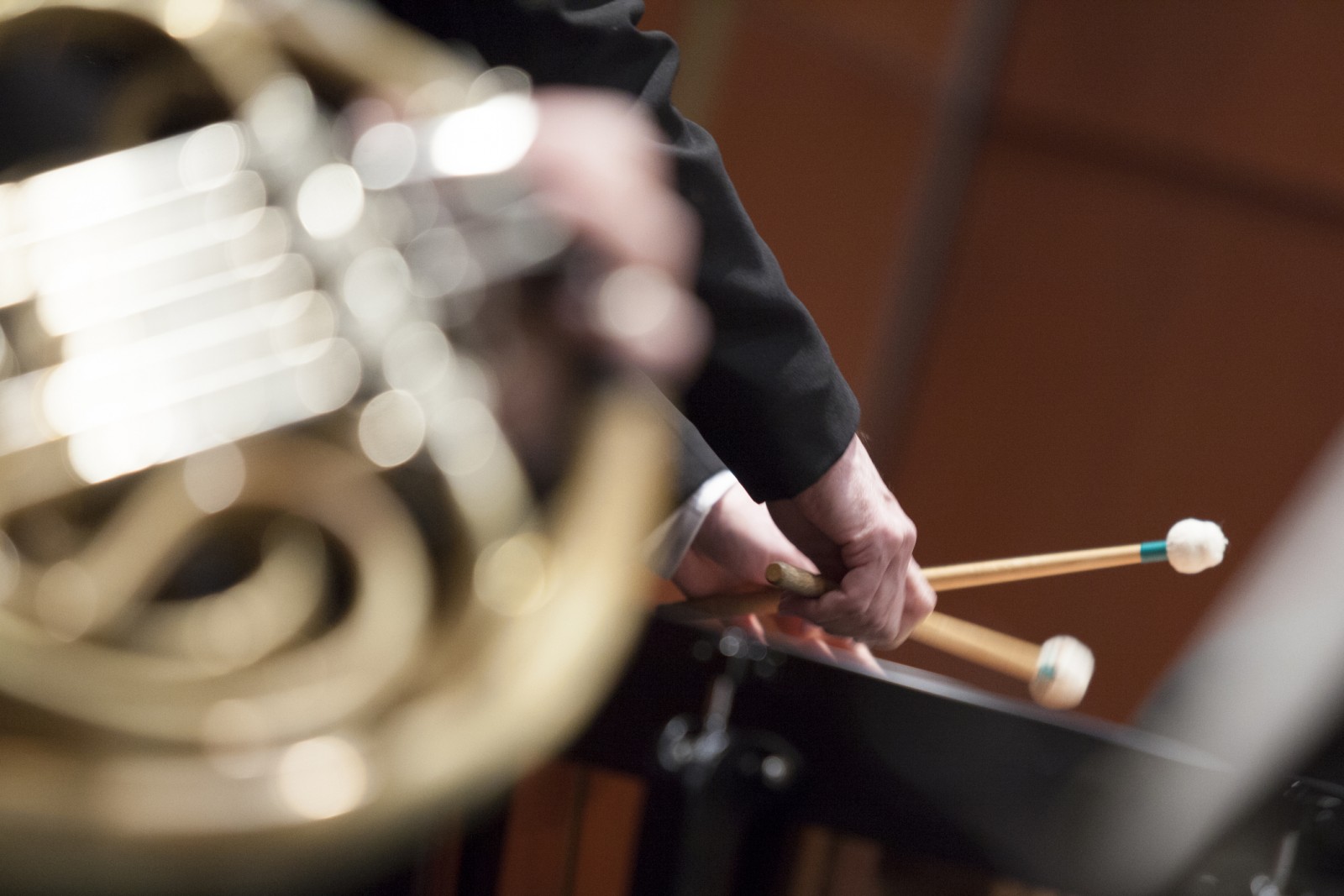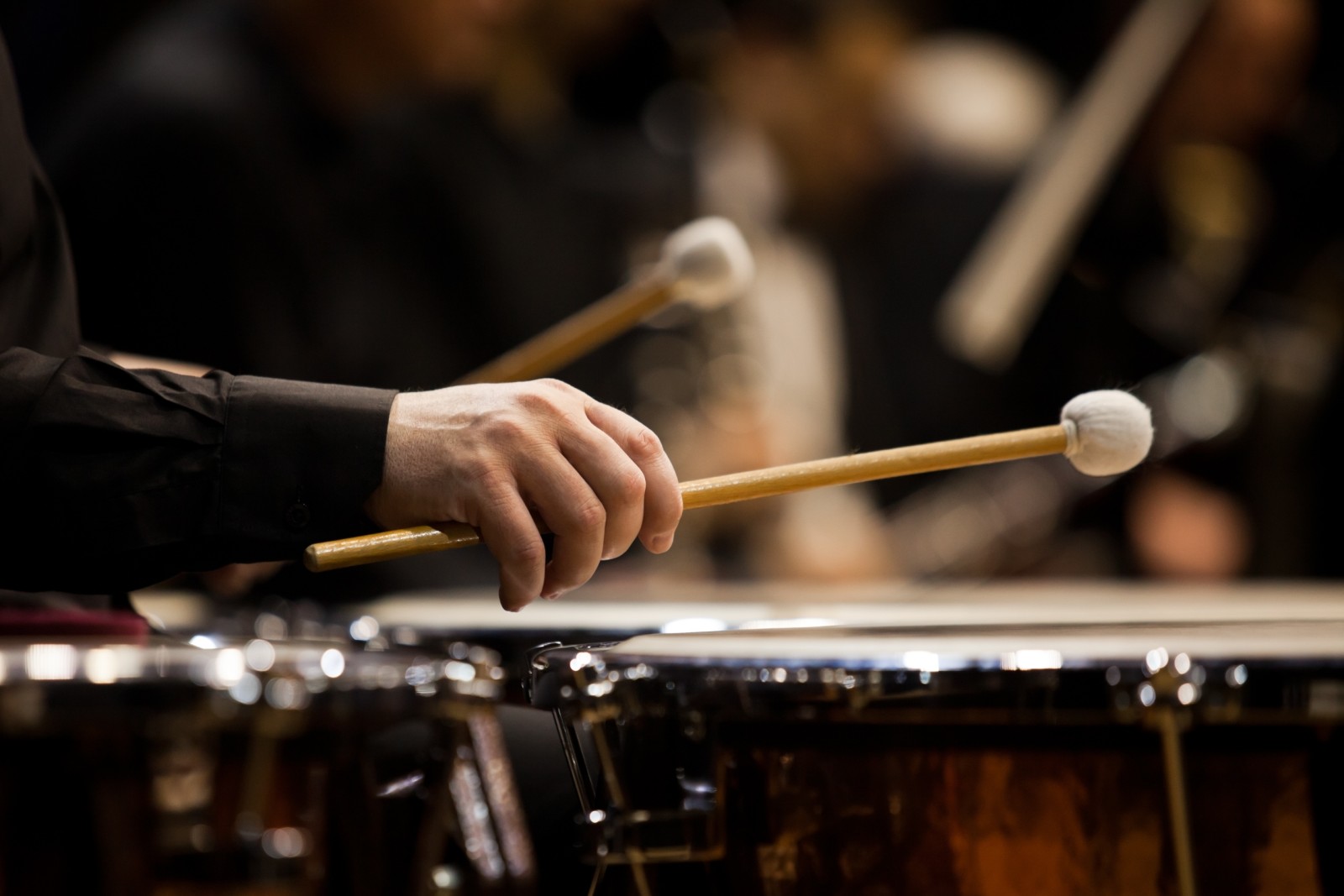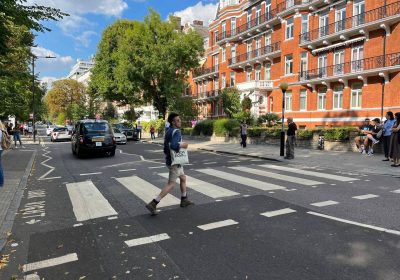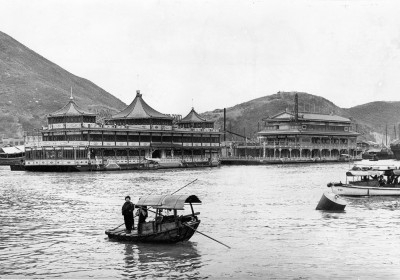(翻譯內容以英文版本為準)
最近,我有幸參與莊嚴的神劇「四季(Die Jahreszeiten)」演奏部分。這一次,我的角色既不是指揮,也不是小號手、歌手或是負責低音伴奏的擊弦古鋼琴手(fortepiano player),而是敲擊樂手。
你或會疑惑:敲擊樂器不是在 19 世紀的浪漫時期才逐漸受歡迎的嗎?為何生於 18 世紀的約瑟夫.海頓,他的作品會有敲擊樂的部分?
的而且確,像海頓、莫札特、貝多芬等古典時期(大約由 1750 年至 1820 年)的作曲家,他們絕少將敲擊元素融入作品之中。然而,在「四季」一劇中,海頓的確編排了敲擊樂部分,包括低音鼓、鈸、手鼓及三角鈴。有趣的是,當小提琴、中提琴與大提琴等其他樂器需要為差不多全首神劇 —— 總共 39 個樂章演奏的同時,敲擊部分只佔一個樂章。具體來說,在總長 160 分鐘的神劇中,敲擊樂手站立並敲擊樂器的時間只佔 —— 1 分鐘。此後,他們需要在餘下的 159 分鐘坐下,並保持絕對安靜。
這次有幸能擔任敲擊部其中一員,令我切身體會到,擔任敲擊樂手絕對沒有想像般輕鬆。
當時我們坐在舞台後方,所有燈都熄滅而發熱器都開了,令環境無比漆黑侷促。汗流浹背已經是等閒之事,最惱人的是要對抗睡魔,避免打瞌睡。小提琴手需要全劇演奏,絕對沒有時間打瞌睡;敲擊樂手則沒有這個褔分。我們不能伸展雙臂,不可能使用手提電話,更絕不能不耐煩地移動身體,展示不想繼續待在這裡的姿態,否則會被視為不專業的舉止。所有敲擊樂手都應該正襟危坐,眼光一直投射在指揮家身上,靜候我們應該演奏的樂章來臨。
演出完結後,不少樂手議論紛紛,認為我們敲擊手實在幸褔:幾乎不需要做任何事,毋須背負彈錯音符的壓力即可輕鬆演出,需要演奏的部分更少得惹人艷羨。他們更認為需要實行樂手「同工不同酬」,指敲擊樂手只演奏了幾個小節,酬勞不應與在全劇 160 分鐘辛勞地演奏的小提琴手看齊。
面對敲擊樂手如此的「褔分」,小提琴手肯定覺得十分妒忌,誰叫他們一開始不選擇當敲擊樂手呢!事實上,敲擊樂手需要承受的壓力遠超乎大家想像,也肯定不是其他弦樂手所想般輕鬆自若。在我有份演奏的神劇,約瑟夫.海頓的「四季」中有 28 位小提琴手,即使其中一位出錯或是彈錯了一個音符,觀眾皆難以察覺。然而,作為敲擊樂手的我便沒有這般幸褔。在短短一節樂章中,我需要在 1 分鐘內兼顧敲擊低音鼓和鈸。當我猶如獨奏者般敲響這些樂器時,正正由於它們迴蕩全場的響亮聲線,絲毫差錯都將顯露無遺。敲擊樂手若有半點差池,所有觀眾都一清二楚。
敲擊樂手需要高度專注以及堅定不移的決心,以消滅打瞌睡的欲望。我感覺我的腎上腺素登上頂峰、我的手心冒汗,當我站起來準備演奏時,我的心跳得飛快。刺激、緊張、興奮與壓力,所有感受在瞬間集於一身,其他樂手肯定無法體會。
常有不少樂團軼事,都與不同樂手的演出酬勞有關。弦樂手要求取得比管樂手及敲擊樂手更多的演出酬勞,因為他們幾乎需要全首演奏,管樂手及敲擊樂手則不然。但我們需要記住:一個管弦樂團就如一個身體,一個組織,所有人都有其責任、有其貢獻、有其角色。若要按演出部分的比例來分配樂手酬勞,那是絕對荒謬的。雖然敲擊樂手只需要演奏幾個音符,但有時候,它們正正就是最為精華、最激起人心的部分,約瑟夫.海頓的神劇「四季」正是一例。
若弦樂手認為如此的安排是不夠公道,最應該受指責的應該是作曲家吧!
The Agony of the Percussionists

Recently, I was involved in a production of Joseph Haydn’s majestic oratorio The Seasons (Die Jahreszeiten), not as the conductor, a trumpeter, a singer or even the fortepiano player that played in secco recitatives, but as a percussionist. Some of you might be puzzled – a percussionist? Didn’t the percussion instruments only gain popularity during the Romantic period in the nineteenth century? Well, that’s true. Composers during the Classical period (roughly around 1750 to 1820), like Haydn, Mozart and Beethoven, rarely included percussion in their pieces.
However, for The Seasons, Haydn composed parts for four percussion instruments, namely the bass drum, cymbals, tambourine and triangle. Interestingly, while the violins, violas and cellos, and many other instruments, have to play in almost all 39 movements of the oratorio, the percussionists only need to play in one of those 39 movements. To be more specific, the oratorio is 160-minute long and the percussionists only need to stand up and whack the instruments in front of them for one minute. And they are required to be seated and absolutely quiet for the other 159 minutes.
I had the pleasure of being one of those percussionists and trust me, it was not as relaxing and enjoyable an experience as it sounds. I will let you know why.
I sat at the back of the stage, where it was so dark and stuffy with all the lights dimmed and all the heaters switched on. It was so easy to be drenched with sweat or worse of all, dozing off and falling asleep. With the violinists, at least they could fight off any potential tiredness or boredom by moving their arms continuously for 160 minutes. The percussionists did not have this privilege. We could not stretch our arms. We could not read or play with our smart phones. We could not shift our bodies impatiently and look like we did not want to be there. These would all be considered as unprofessional. All the percussionists could do was to sit upright, look at the conductor continuously, and wait for our entry.
After the concert, many other musicians, such as the violinists and singers, commented on how fortunate we percussionists were. They claimed that we hardly needed to do anything, were under no pressure of playing any wrong notes and could sit around relaxing for the duration of almost the whole performance. The worst part for them to swallow was that all the instrumentalists were paid the same amount of money. In other words, the violinists who needed to play thousands of notes for almost 160 minutes continuously had the same salary as me, a percussionist who only needed to play a handful of notes and spent most of the time sitting down doing nothing. There was no doubt that the violinists were envious and jealous. But it was their fault for not choosing to become a percussionist in the first place!
On a serious note, the pressure of being a percussionist is intense. It most certainly is not as relaxed and laid-back as some strings players have come to believe. In my performance of Haydn’s The Seasons, there were 28 violinists. Hardly anyone in the audience, if any, would realise if a violinist had made a mistake or played a wrong note. However, this was not the case for me, who played the bass drum and cymbals together during the minute when I actually had to perform. As I was playing these instruments alone like a soloist, and because of the tremendous sounds that these instruments made, there was no hiding if I made a mistake. Everyone in the audience would know if I was late or early to an entry.
Being a percussionist requires utmost concentration and an unwavering determination to fight off any impulse to doze off. I was full of adrenaline, my palms were sweating and my heart was pounding heavily as I stood up to prepare my entry in the performance. The excitement, tension, elation, stress and stimulation felt at that moment were something that an orchestral strings player would never experience.
There are always anecdotes that orchestral strings players demand more money than the brass and percussion players, because they do more work and have to play all the time. But we ought to remember that an orchestra is a body, an entity, an organisation, in which everyone has a responsibility, a contribution and a role to play. The arguments that orchestral players should be paid by the note are absolutely absurd and preposterous. Sometimes the very few notes that the percussionists have to play are the highlight and most exciting thing of the performance, as was the case in the Haydn oratorio that I performed in.
If the strings players wanted to blame anyone for this perceived unfairness and injustice, they should blame the composers!















